Establishing good habits and a consistent daily routine for your new puppy is important starting from the first day you welcome your new puppy home.
You can do this by creating a good puppy schedule, which is a consistent daily routine that develops good habits for both you and your young puppy. Giving your puppy a consistent schedule from the beginning will help both of you get off to a great start from the first few days your puppy arrives home.
Below, we’ll go over the benefits of setting up a puppy schedule for you and your dog and give you an overview of a sample schedule you can use and adapt according to your own needs.
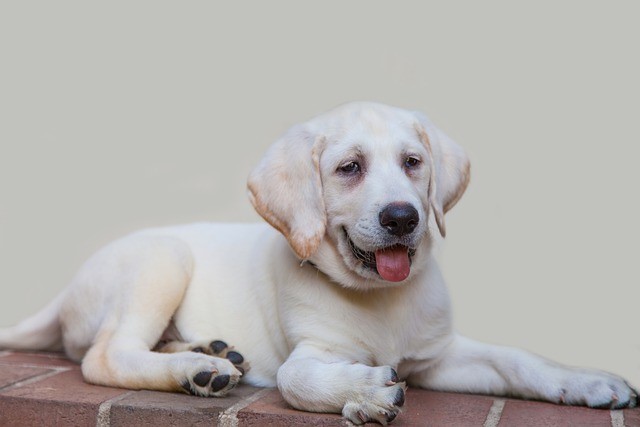
Benefits of a Daily Puppy Schedule For You
The first few weeks of welcoming a new puppy home can be a bit of a chaotic and overwhelming experience, especially if you’re new to dog ownership.
(This article may contain affiliate links. As an Amazon Associate I earn from qualifying purchases. Learn more)
Energetic and athletic dog breeds, such as Labrador Retrievers, can be very active puppies that can take up a lot of time and energy, especially at the start.
We have a guide to the most critical steps to take before you bring your new puppy home, but one of the most important is to establish a puppy schedule before you bring your dog home from the breeder, rescue, or shelter.
Creating a daily puppy schedule can allow you to feel a bit more in control over the potential chaos that can happen when you first introduce a new puppy into your home. This is also true if you already have a dog and are planning to introduce a new dog to your current dog in the most helpful way possible.
Sometimes people don’t realize how much work a new puppy is going to be, and establishing a basic schedule can really help clarify the amount of attention and responsibility that will be necessary for a new puppy, especially a Labrador puppy.
Don’t start out expecting your Lab puppy to follow the routine exactly, as its purpose is to help you plan your day better, and help you recognize realistically how much time and effort your adorable new dog is going to be.
A daily routine for your puppy, set up from the beginning, will also help you understand how to anticipate your puppy’s needs better and learn their cues, such as when they’re hungry, or when they might need to go on a potty break outside.
Establishing a daily puppy schedule will also benefit you by setting clear and realistic expectations for everyone else that may be in your household of what your puppy’s needs will be.
If you have other people living with you and sharing responsibility for your dog, such as your children, having a consistent puppy schedule will allow them to help take part in the care of your dog by understanding what tasks need to happen and when they need to be done.
You can assign certain responsibilities at certain times to other people to help manage your puppy’s schedule, or you can set up help for your dog, such as a dog walker or puppy sitter, as needed at the appropriate times.
A schedule will allow you to recognize, in advance, when those times you’ll need help might be.
How a Daily Schedule Helps Your Puppy
Labrador Retriever puppies go through many amazing changes in the first two months of life before they are welcomed home by you and your family.
Moving into a new environment and away from their litter (and mother dog) can be a big shock to a little Lab puppy, and you’ll want to do everything you can to make it easier.
Creating a good puppy schedule will help your puppy adjust to their new life better in your home by learning what to expect in this new environment, as well as help them with the process of house training and learning manners.
A consistent schedule will help your Labrador puppy get acclimated to their new environment faster and with less stress (and possible frustration) for both of you.
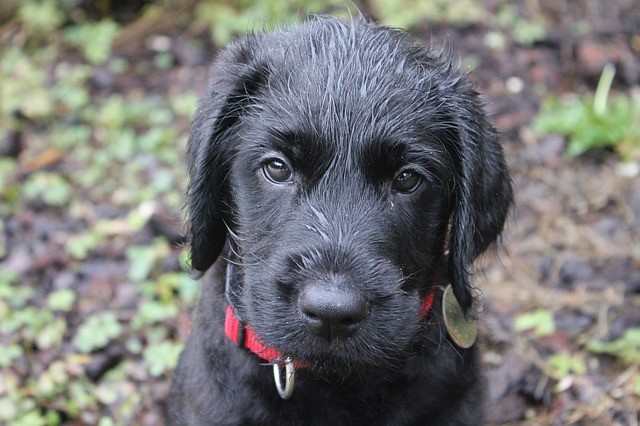
They’ll learn what to expect from you sooner, and they’ll be less likely to become confused about what’s happening around them when they are more comfortable with the daily routine.
While your Lab puppy won’t necessarily follow the schedule right from the start or even follow it exactly, it’s more of a guideline to be used to help establish a good, consistent routine.
Labrador Retrievers are known for being intelligent dogs that are easy to train and very attached to their humans. They can pick up on the routine of daily life in your home very quickly, and you’ll want to establish a good routine for them to follow rather than letting them create any possible bad habits at the start.
Having a good daily routine can also prevent some unwanted puppy behavior, like excessive barking or whining, that may occur when your pup is anxious, wants to try to get your attention, or doesn’t know what happens next.
If you can get ahead of and address puppy issues like mealtimes, potty breaks, and rest times before your puppy becomes overly hungry, agitated, or tired, you can prevent some of this unwanted behavior before it starts.
Consistency is your friend in puppy training, especially with Labrador Retrievers. Labs grow to be large dogs very quickly, and you’ll want to establish good habits when your dog is small to make it easier for them to follow when they’re bigger!
Sample Labrador Puppy Schedule
Here is a basic guideline for a daily puppy schedule you can adjust as needed:
- 6 am: wake-up & potty break immediately outside
- 6:15-6:30 am: breakfast, followed by another potty break outside
- 7 am: playtime/walk for puppy
- 8 am: potty break outside
- 8:30 am: naptime
- 9:30 am: wakeup puppy & potty break outside
- 10 am-noon: playtime, naptime, potty break
- 12 noon: lunch time & potty break outside
- 1-2 pm: playtime & potty break
- 3-4 pm: naptime & potty break as needed
- 5 pm: dinner time & potty break
- 6 pm-bedtime: playtime/walk, naptime, potty breaks as needed
- Overnight: short potty breaks (as needed for young puppies)
Don’t let this schedule overwhelm you! It can be adjusted as necessary and appropriate for the needs of your dog, your family, and your own personal schedule.
You may find your particular puppy has different energy needs and rest needs at different times of the day. Feel free to adjust the wake times, bedtimes, and meal times as needed for you and your dog. Check with your veterinarian if you have questions about the frequency of feeding times for your new puppy, as it can vary by age.
You’ll want to make sure your puppy is getting a lot of socialization with safe, kind people, as well as cuddles, love, and play as much as they can during the day.
Puppy rest is very important also. Lab puppies grow and develop at an extremely fast rate, so don’t be surprised if one minute your puppy is running around the room, and the next minute they’ve fallen asleep on your feet!
You might notice there are a lot of potty breaks mentioned in this suggested schedule.
In the beginning, if you’re getting a new, young puppy who isn’t house trained, you’ll have to take your dog out many, many times in the first few weeks or months during this process to try to prevent as many accidents as you can in your home.
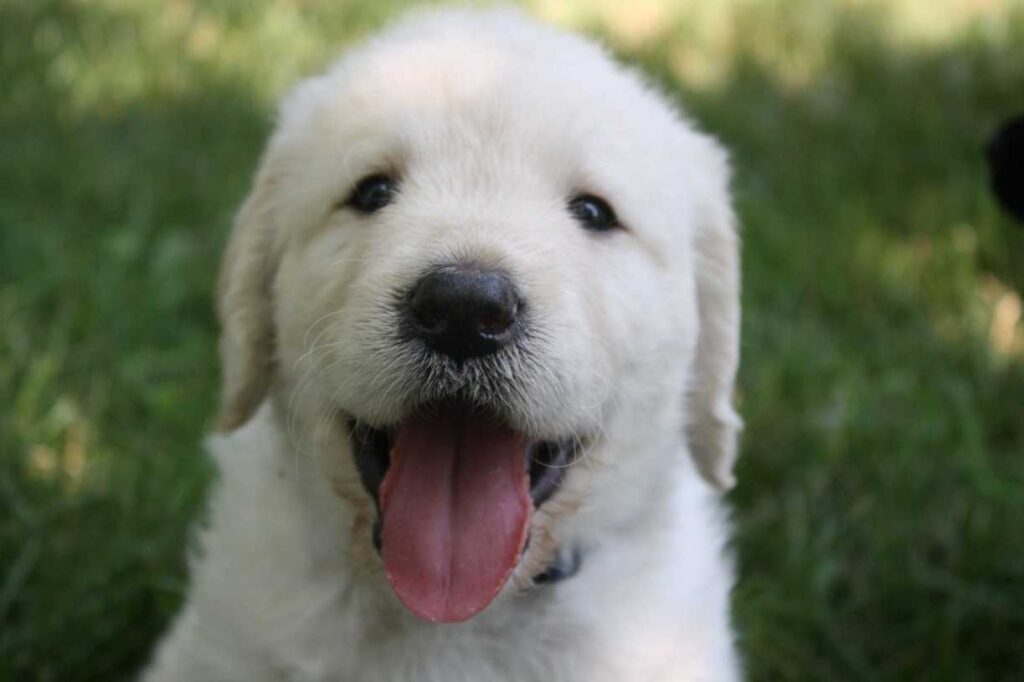
As your puppy gets older, past the first few months, they will not need as many or as frequent potty breaks as they do in the beginning.
Your puppy will eventually be able to go several hours in between potty breaks as time goes by and they grow bigger. But at the beginning, you’ll want to prepare for frequent trips outside to teach them where you want them to go.
This schedule can be easier if you have a yard or designated outdoor space at your home. If you’re living in a smaller space such as a condo or an apartment with a large breed dog or puppy such as a Labrador Retriever, read our guide for how to deal with large dogs in smaller spaces for some helpful strategies to make it work.
Importance of Flexibility & Adjustment As Needed
Remember that puppies are unique with their own temperaments and personalities. Be flexible and understanding with your little pup, and be aware of all the changes they’ve experienced in the short time since they were born.
Your daily puppy routine should be flexible and adaptable when necessary. You don’t have to stick to exact times, and you should have the flexibility to adapt certain aspects of the schedule to suit what you determine to be your puppy’s best needs.
The idea of setting a routine is to help both you and your Labrador puppy establish good habits, and you can do that by allowing some flexibility when it’s helpful and necessary for both you and your dog.
How Fast Your Puppy Will Adapt to Their Routine
Labrador Retriever puppies are fast learners who love to please their human family members, and your puppy will likely pick up on the general daily routine within a few days or weeks.
But don’t be upset with your puppy if they seem to not understand much of the schedule, or seem to be sometimes operating on their own “Labrador time.”
Stay consistent and your puppy will eventually catch on. You may notice them start to run for the back door to head outside, for example, right after they wake up from a nap. This is a great sign they’re learning a consistent and clear routine!
Don’t get frustrated with your puppy if they have trouble following the schedule or seem to be unaware of it. Your puppy may be picking up on more of the daily routine than they appear to be, and are likely benefiting from your consistent and stable routine more than you know.
Always be kind, loving, and consistent.
Summary – The Importance of a Daily Puppy Schedule
One of the best things you can do when you first get a new puppy or adopt a new dog is to set up a good daily routine. By creating a good puppy schedule, you develop a stable daily routine that establishes good habits for both you and your young puppy from the start.
Labrador puppies, like other dogs, thrive on stable routines and familiar expectations. Giving your puppy a consistent schedule from the start will help both you and your puppy develop the foundation for a great relationship from the first few days your puppy arrives home.
For more tips on bringing home a new puppy, check out the 7 Things to Do Before You Bring Your New Puppy Home.


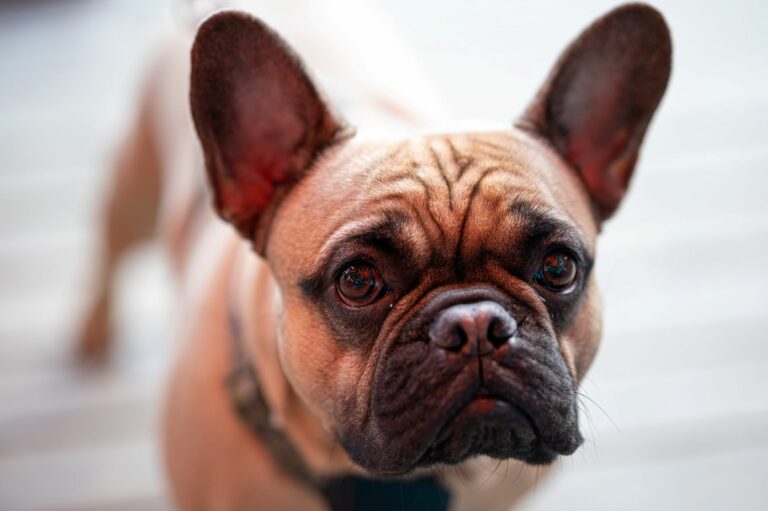

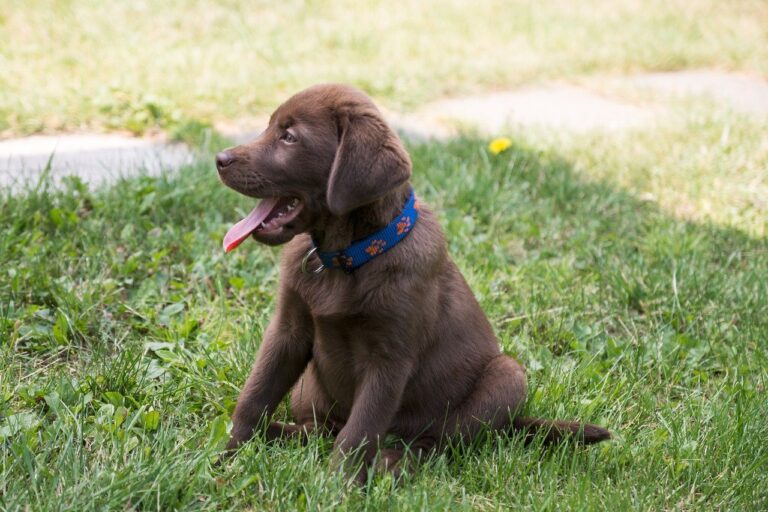

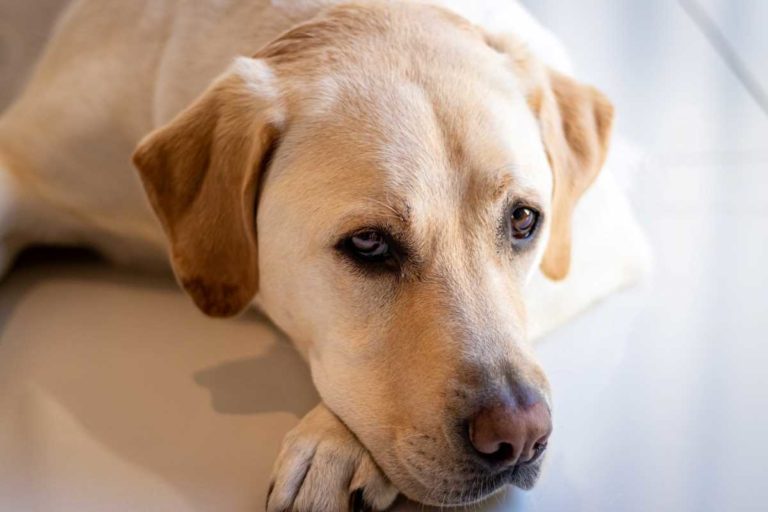

My new Lab puppy has done really well picking up on a daily schedule & now she knows when it’s time to wake up and eat right away. They are very fast learners.